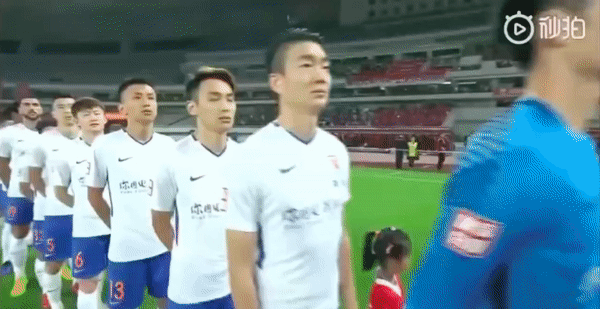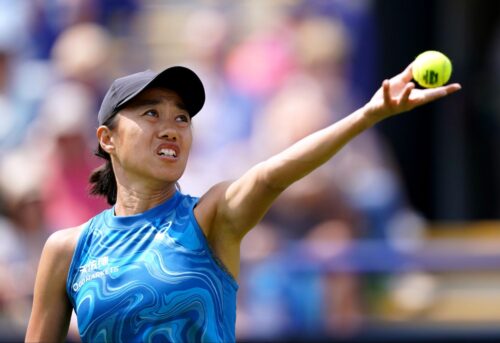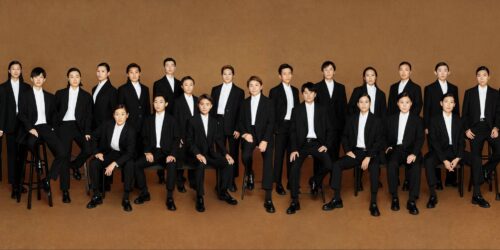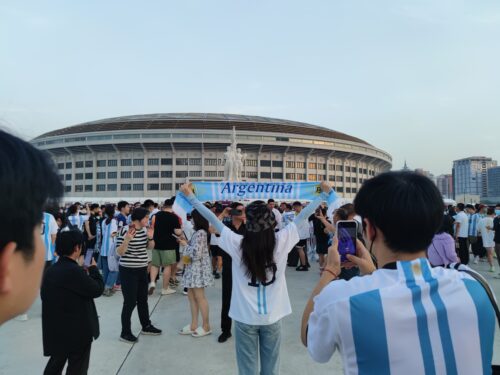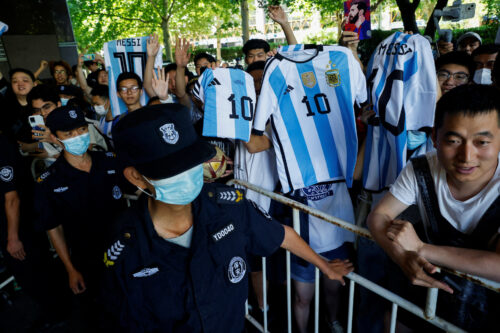WTA Finals ready for Shenzhen, but are Chinese fans ready to embrace women’s tennis?
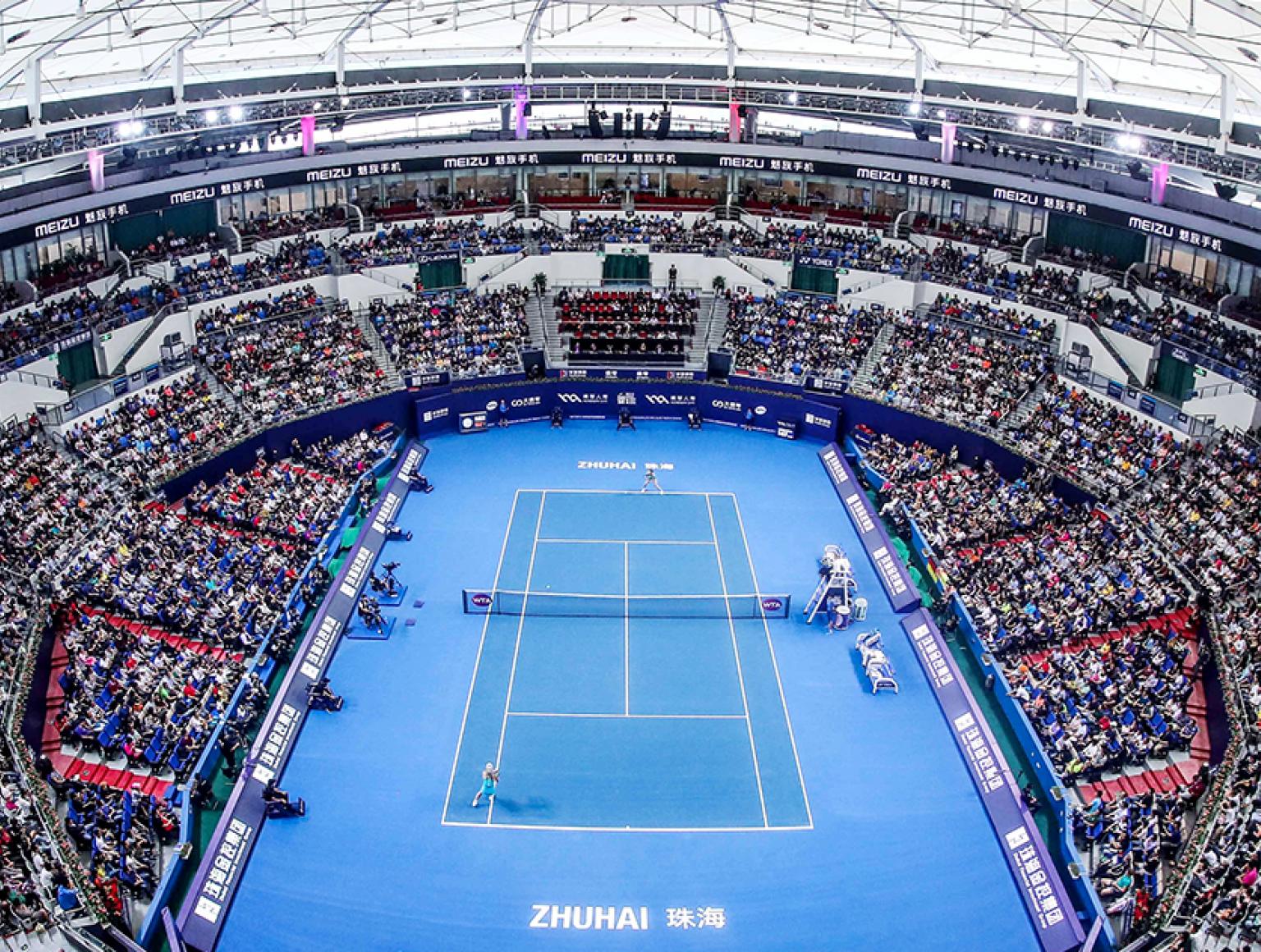
The China Sports Column is a The China Project weekly feature in which China Sports Insider Mark Dreyer looks at the week that was in the China sports world.
When the southern Chinese city of Zhuhai was first awarded the rights to host the WTA Elite Trophy tournament — for the best female tennis players in the world outside of the top eight singles and doubles pairings — it was widely seen as a coup for the region.
Hosting ostensibly the second most prestigious tournament outside of the Grand Slams, Zhuhai immediately found itself on the global tennis map, vaulting over other Chinese tournaments in Guangzhou, Wuhan, Shenzhen, Tianjin, and arguably Beijing, too.
But when a tournament is built upon a “best of the rest” principle, there is always going to be a feeling that it’s somewhat second-rate. After all, with the exception of the Chinese wild card players, none of the players really wanted to be there. They would far rather have instead played at the WTA Finals in Singapore the week before, taking their place as one of the best eight players in the world.
But that will all change next year.
With Singapore having hosted its last WTA Finals game on Sunday — in which the sixth-seeded Ukrainian Elina Svitolina beat fifth-seeded Sloane Stephens 3-6, 6-2, 6-2 — the mantle has now passed to Shenzhen, which, from 2019, will start a 10-year run as host of this prestigious season-ending tournament.
The sports division of real estate company Gemdale is bankrolling the WTA Finals to the tune of $14 million per year — twice what Singapore has been paying.
By comparison, the ATP Finals shells out “only” $8.5 million for the men’s season-ending event. The Shenzhen tournament will truly be a game changer in a sport that’s long campaigned for women to be paid as much as men.
But when things kick off next year, Shenzhen will have its work cut out.
At the ongoing Elite Trophy in Zhuhai — just across the water from Shenzhen — there are two Chinese players, Wang Qiang 王蔷 and Zhang Shuai 张帅, who qualified as the last seed and a wild card, respectively. But they’ve lost all their matches so far, and won’t be sticking around for the semifinals and beyond.
With tennis still a relatively new sport in China, fans here much prefer to see either domestic players or the very biggest global stars.
Based on current rankings, though, there won’t be any Chinese players present in Shenzhen, since — unlike the Elite Trophy — organizers don’t get to placate the local crowd by selecting a player of their choice.
Serena Williams, if she’s still going, will be 38. Maria Sharapova, meanwhile, is currently languishing outside the top 20.
And while there are still some legitimately big names in women’s tennis, there’s no group that matches the enduring talents of Roger Federer, Rafael Nadal, Novak Djokovic, and Andy Murray (a.k.a. the Big Four) from the men’s tour.
For example, the past 18 months has seen no fewer than six different women become world number 1, three of whom won the honor for the first time.
By contrast, the last time someone from outside the Big Four topped the men’s rankings was in early 2004.
What this means, of course, is that — barring a breakout season from Wang Qiang or another Chinese player — ticket sales in Shenzhen will be slow, something that foreign media will be sure to point out as they sit in a half-empty arena. Singapore has also found ticket sales a challenge over the past five years, but expect Shenzhen to struggle even more.
However, while a full house is always preferable, both optically and financially, the empty seats won’t cause much of a headache for the organizers, because the business model for tournaments in China is, well, different.
Gemdale is responsible for building a new tennis arena, which was initially announced as a 12,000-seater but has since grown even larger. But financially, it’s the not the tennis that will make or break this deal. There’s no way Gemdale would gamble its future on the next Li Na 李娜 suddenly emerging and staying at the top of her game for a decade.
Instead, non-tennis deals — not least preferential treatment from local government officials — are effectively what allows Gemdale to enrich the WTA to such an extent, although it helps that Gemdale boss Ling Ke 凌克 just happens to be a massive tennis fan himself.
It’s not a business plan that would stand up to even the mildest scrutiny from Western bankers, but it’s one that usually works in China.
The WTA will, of course, be keen to see Chinese fans pack the stands to watch Chinese players battle it out for the end-of-season crown, but they’ll get their money either way.
~
This column brought you news two weeks ago of Chinese goalkeeper Zeng Cheng’s “weed socks” and confidently predicted a lengthy ban would ensue.
But in the ever-random world inhabited by the Chinese Football Association (CFA), it appears as if they’ve bought his argument that he didn’t know the significance of what he was wearing, and are reportedly not punishing him after all.
It’s hard to know which is a more head-scratching decision — this let-off or Diego Tardelli being banned for effectively stroking his face during the national anthem prior to a recent game.
Brazilian footballer Diego Tardelli fined, suspended for ‘disrespecting’ Chinese flag
On the scale of Colin Kaepernick’s knee to Tommie Smith’s black power salute, this barely even registers, but most have long ago given up trying to make sense of the CFA’s decisions.
But while Kaepernick found some sympathizers within the NFL who followed his lead, don’t expect Tardelli’s fellow Brazilians in the Chinese Super League to rub their faces in solidarity.
With the CFA regularly handing out suspensions lasting for as long as a year, relying on the generosity of their Punishment Committee is not a recommended strategy.
The China Sports Column runs every Friday on The China Project. Follow Mark Dreyer @DreyerChina.
